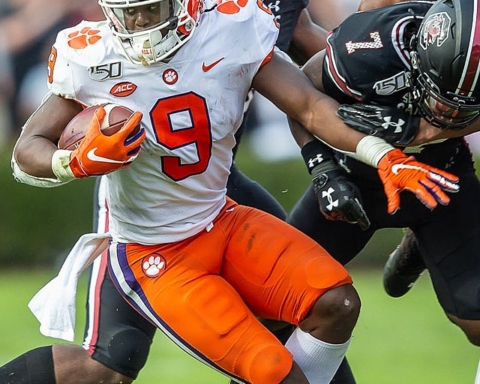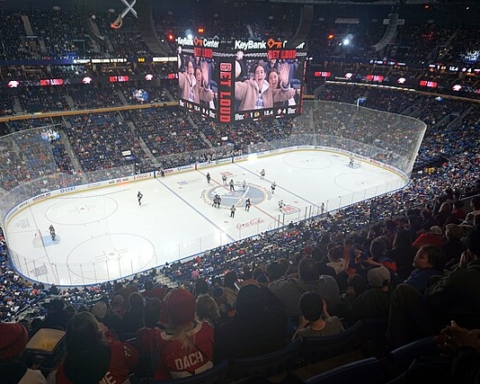By Pat Tintle
Sports Editor
Major League Baseball (MLB) players are filthy rich.
How rich? To put it in perspective, the 12 largest sport contracts in history come from MLB players, the highest being this off-season’s signing by the Miami Marlins of Giancarlo Stanton, who will make $325 million over the next 13 years. On average, that’s $25 million a year, over $150,000 a game and roughly $38,000 an at bat. Once the 2015 season begins, Stanton will make more than some individuals’ yearly salary in about five minutes. He will make more than the average NHL player’s yearly salary in a little less than two weeks.
The most recent example of a bloated MLB contract can be seen in the Washington Nationals’ acquisition of starting pitcher Max Scherzer. The former Detroit Tiger will make $210 million in the seven-year contract, but Scherzer will be making millions long after he hangs up his jersey, as half of his contract has been deferred. He will be making $15 million annually for the next 14 years.
That’s a ton of money for a pitcher who has achieved an earned run average under 3.00 only once in his seven-year career.
Some writers and fans argue, “Big deal, baseball players make a lot of money, so do many other professional athletes – and if the money didn’t go to the players, it would just go in the owners’ pockets.”
True, MLB is a business like all professional sports, and with all high-profiled businesses, millions of dollars are thrown around. It’s part of the financial game.
But, unlike other sports, baseball is not a game that can be decided by one player, even if that player is making north of $20 million a year. NBA franchises can almost guarantee a playoff spot when acquiring one or two all-star caliber players. NFL franchises have seen a losing team turn into a playoff team after acquiring one elite quarterback.
More than any other major American sport, baseball relies on the team aspect. Having a roster full of all-stars never ensures a championship in MLB. In fact, giving out huge contracts in baseball can often end up hurting the team in their efforts of long-lasting success.
Crippled by numerous outrageous contracts, the New York Yankees have fallen from their position as the crown jewel of professional baseball. The New York Mets stocked their roster with expensive, elite hitters in the mid-2000s. The team only has one playoff appearance, and a whole lot of losing seasons, to show for it. The Philadelphia Phillies handed out contracts to create a three-headed pitching monster in 2010 and, after initial success, now sit at the bottom of the National League East.
As history shows, it’s hard to buy a durable, winning team in baseball when 20 percent of the payroll goes to one player. It’s even harder to see an example of a megadeal that ended well for a team. The Seattle Mariners did nearly invert their record after signing Robinson Cano, but let’s wait to see how that deal looks in ten years.
Of course the better ballplayers will (and should) receive more lucrative contracts than lesser-performing players, but having a massive gap between the average salary and the highest salary on a team only impairs long-term success. The San Francisco Giants have won three of the last five World Series with only one player making $20 million dollars – that player being starting pitcher Matt Cain who, by the way, only recorded 90.1 innings and accumulated a 2-7 record to go with his lackluster 4.18 ERA last year. His six-year, $127 million contract is surely not worth the 0.1 wins above replacement he produced last season.
In this status quo, it is almost impossible for teams to compete in top-tier free agency without shelling out over $100 million for a needed player. But those teams who focus on getting more bang for their buck rather than more bucks for less bang are the teams who will be consistent playoff contenders in the upcoming years.
Oakland Athletics General Manager Billy Beane popularized this forward thinking more than a decade ago, and it would be beneficial for all teams to take a step back and build an all-around excellent roster instead of herding in a handful of excellent individual players who rarely earn the contracts they signed.
Pat Tintle is the Sports Editor at
The Bona Venture. His email is tintleph11@bonaventure.edu








